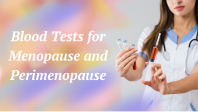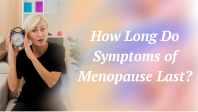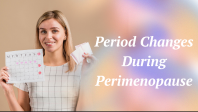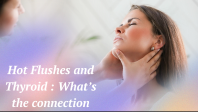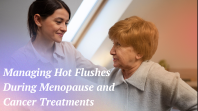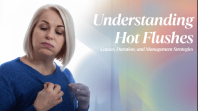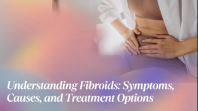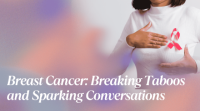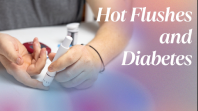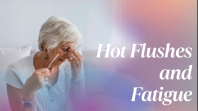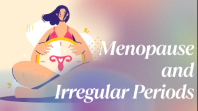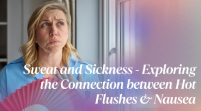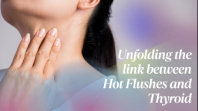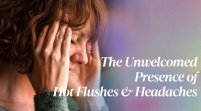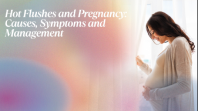Headache and Hot Flushes : Why you cant you find any relief?
October 20, 2024
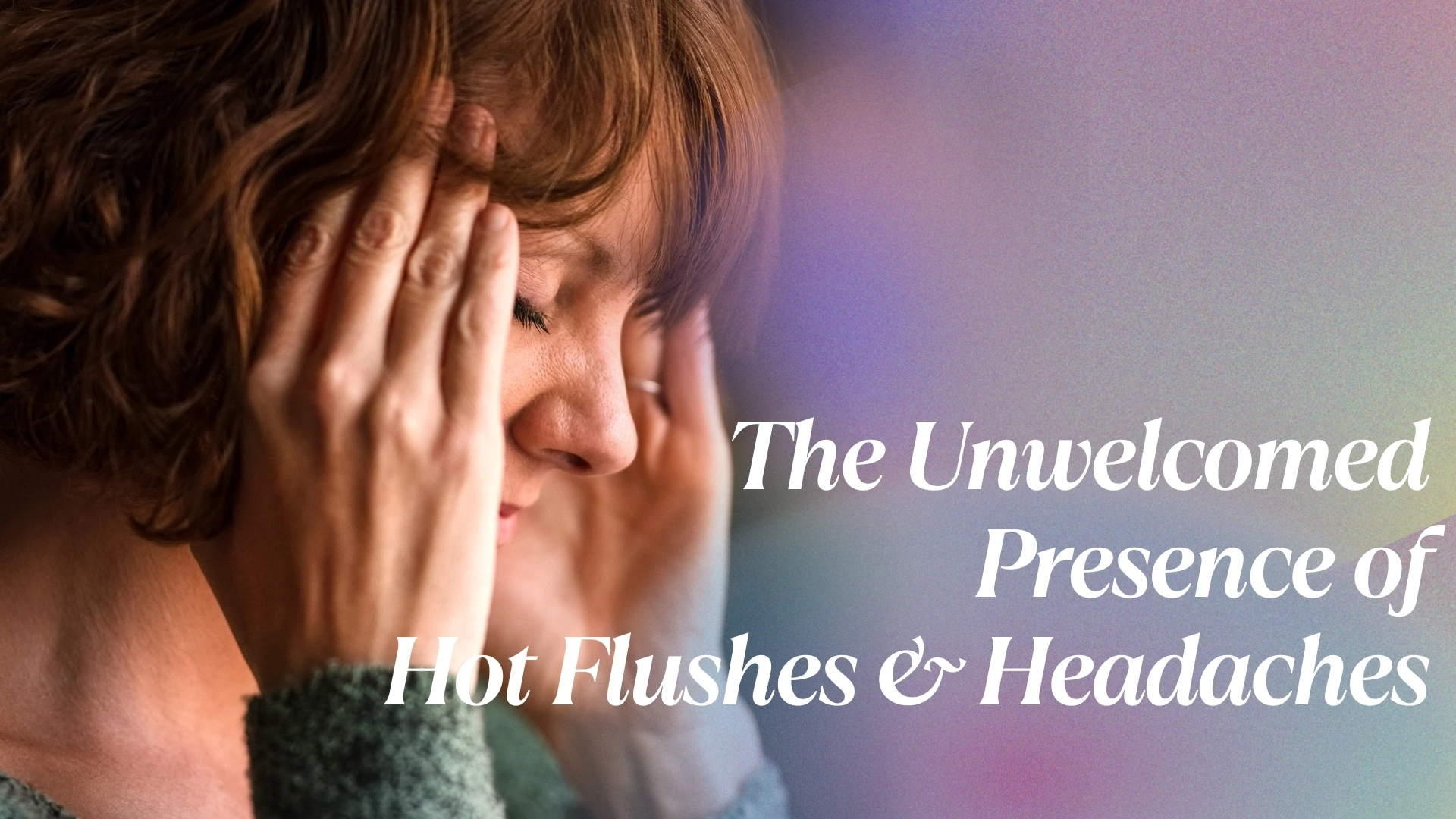
Hot Flushes and Headaches: Why You Need to Be Bothered
Have you ever experienced the sudden intrusion of unwelcome guests? Imagine finding yourself in a space where surprise visitors and unwanted companions barge in unannounced, disrupting your peace and comfort. For menopausal women, this scenario is all too familiar when hot flushes and headaches make their grand entrance. These symptoms can feel like the uninvited guests of menopause, disrupting daily life and leaving a trail of discomfort and frustration in their wake. But what exactly is the connection between these two? Are they truly an uncommon pairing? Let’s delve into this phenomenon and explore the intricate relationship between these two symptoms.
Understanding Hot Flushes
As we all know, hot flushes are one of the hallmark symptoms of menopause. They manifest as sudden sensations of intense heat, typically centered around the face, neck, and chest, often accompanied by sweating and an increased heart rate. These episodes can last from a few seconds to several minutes and can be triggered by various factors, including stress, spicy foods, caffeine, and alcohol.
For many women, hot flushes are the most disruptive aspect of menopause, occurring at any time of the day or night. They can affect sleep patterns, leading to insomnia and further exacerbating feelings of fatigue and irritability. The unpredictability of hot flushes often leads to anxiety about when and where they might strike, adding another layer of stress to an already challenging transition.
The Headache Connection
Now, let’s consider headaches. While unpleasant sensations experienced in the head, including tension, pressure, or throbbing sensations, are common and can occur for a variety of reasons, they can become particularly troublesome during menopause. Many women experience tension headaches or migraines that may coincide with their hormonal fluctuations. These pains can be triggered by several factors, including:
- Stress: The emotional and physical stress associated with menopausal changes can lead to tension headaches.
- Dietary Triggers: Certain foods or beverages, such as caffeine, chocolate, and aged cheeses, can act as triggers.
- Sleep Deprivation: Hot flushes can disrupt sleep, leading to daytime fatigue and headaches.
- Hormonal Fluctuations: The changing levels of estrogen and progesterone can also contribute to headache patterns.
So, do hot flushes and headaches always come hand in hand? Thankfully, not necessarily. While a hot flush can simply be a hot flush, at times, it may signal the arrival of its clingy companion—the headache. When this happens, what were once mere annoyances escalate into painful experiences.
The Hormonal Link
The relationship between hot flushes and headaches can largely be attributed to hormonal fluctuations during menopause. As estrogen levels decline, many women experience a cascade of symptoms, including hot flushes and headaches. Estrogen plays a significant role in regulating neurotransmitters in the brain, including serotonin and norepinephrine, which are critical for mood and pain regulation.
When estrogen levels fluctuate, it can lead to increased sensitivity to pain and heightened experiences of discomfort. This is particularly evident during the menopausal transition when many women report increased frequency and intensity of headaches coinciding with hot flushes.
Managing Hot Flushes and Headaches
While hot flushes and headaches may feel overwhelming, there are various strategies to manage these symptoms effectively:
- Lifestyle Modifications: Adopting a healthier lifestyle can significantly impact reducing the frequency and intensity of hot flushes and headaches. This includes maintaining a balanced diet, staying hydrated, engaging in regular physical activity, and prioritizing sleep.
- Stress Management: Implementing stress-reduction techniques, such as yoga, meditation, or deep breathing exercises, can help alleviate tension and promote relaxation, potentially reducing the frequency of headaches.
- Identifying Triggers: Keeping a diary to track hot flushes and headaches can help identify specific triggers, whether they be foods, beverages, or environmental factors. By understanding these triggers, women can make informed choices to avoid them.
- Hormonal Therapies: For some women, hormone replacement therapy (HRT) may be an effective option to alleviate menopausal symptoms. HRT can help stabilize hormone levels, potentially reducing hot flushes and related headaches. However, it’s essential to consult with a healthcare professional to weigh the benefits and risks of this treatment.
- Over-the-Counter Medications: Non-prescription pain relievers, such as ibuprofen or acetaminophen, may help alleviate headache symptoms. However, it’s advisable to consult a healthcare professional before using any medication regularly.
- Alternative Therapies: Some women find relief through alternative therapies such as acupuncture, chiropractic care, or herbal supplements. While the effectiveness of these methods can vary, they may provide additional avenues for managing symptoms.
- Staying Cool: During a hot flush, finding ways to cool down can provide immediate relief. This may include using fans, wearing breathable fabrics, or taking a cool shower.
- Staying Connected: Support networks, whether through friends, family, or online communities, can provide valuable emotional support and encouragement. Sharing experiences and strategies with others who understand can make a significant difference during this transitional phase.
Embracing Change
While hot flushes and headaches may feel like unwelcome guests at the menopause party, understanding their connection and managing their symptoms can empower women to navigate this transitional phase with greater ease.
By recognizing the hormonal interplay and making lifestyle adjustments, women can take control of their health and well-being during this time. Remember, it’s essential to consult with a healthcare professional to discuss any concerns and create a tailored approach to managing symptoms.
In conclusion, while hot flushes and headaches may indeed crash the menopause party, with the right knowledge and strategies, women can regain their comfort and confidence. Embrace this phase of life as a time of transformation and resilience, knowing that you have the tools to manage these challenges head-on. After all, menopause is just another chapter in the remarkable journey of womanhood, filled with opportunities for growth, empowerment, and newfound strength.

